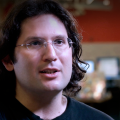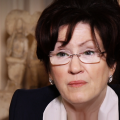For its first few decades, we’ve regarded the Internet as a kind of frontier. An expansive environment ripe for exploration and development. In particular the word cyberspace evokes the mental or imaginative element to this emerging world. However the rise of social media has brought human relationships and human needs to the forefront.
Vint Cerf, Internet pioneer and Google executive describes how “this medium (the internet) allows a great deal of exploration of relationships.” The fluidity and flexibility of identity allows us to role play and explore sides of ourselves that may not have been accessible otherwise.
However that flexibility and fluidity can be taken to an extreme. Microsoft sociologist danah boyd focuses a lot of her research on the pressures young people face growing up in this technology saturated society:
“And so it becomes this really strange magnifying glass where social media magnifies all sorts of everyday dynamics in ways that can be really advantageous for certain youth, and really problematic in others.”
Scale that up from the individual to the group and community level and the dynamics become even more amplified as danah boyd elaborates:
“The internet enables communities of interest to form in really powerful ways. Kids who are feeling really isolated, vulnerable, victims of their own household, that are really struggling and wanting to lash out can also form big gangs of young people who self-validate and recognize each other in acts of meanness and cruelty for sport.”
This is where the concept of the filter bubble becomes dangerous. Often we discuss the ways in which the subjectivity of online environments can be mistaken for objective reality. The narrow slice of life we experience can be mistaken for the shared or universal experience that we believe others have.
The filters that manage the tide, that keep the information overload of the web at bay, can also create a bubble, an illusion that reflects and mirrors what we want to see, fooling us into a false sense of security or self.
As a society immersed in the Internet we’re only just understanding the role and impact of filter bubbles upon us as individuals and as groups. Perhaps there is optimism to be derived from something that Carnegie Mellon University Professor Jessica Hammer argues, that the digital filter bubble is easier to break than the physical one:
“Games can cut across this and digital techs can cut across this because in the real world, we’re often subject to 1st impressions, biases that we cannot control… you can go your whole life without ever really leaving your bubble. And it’s much harder to disrupt this in the phys world than it is in the digital world.”









